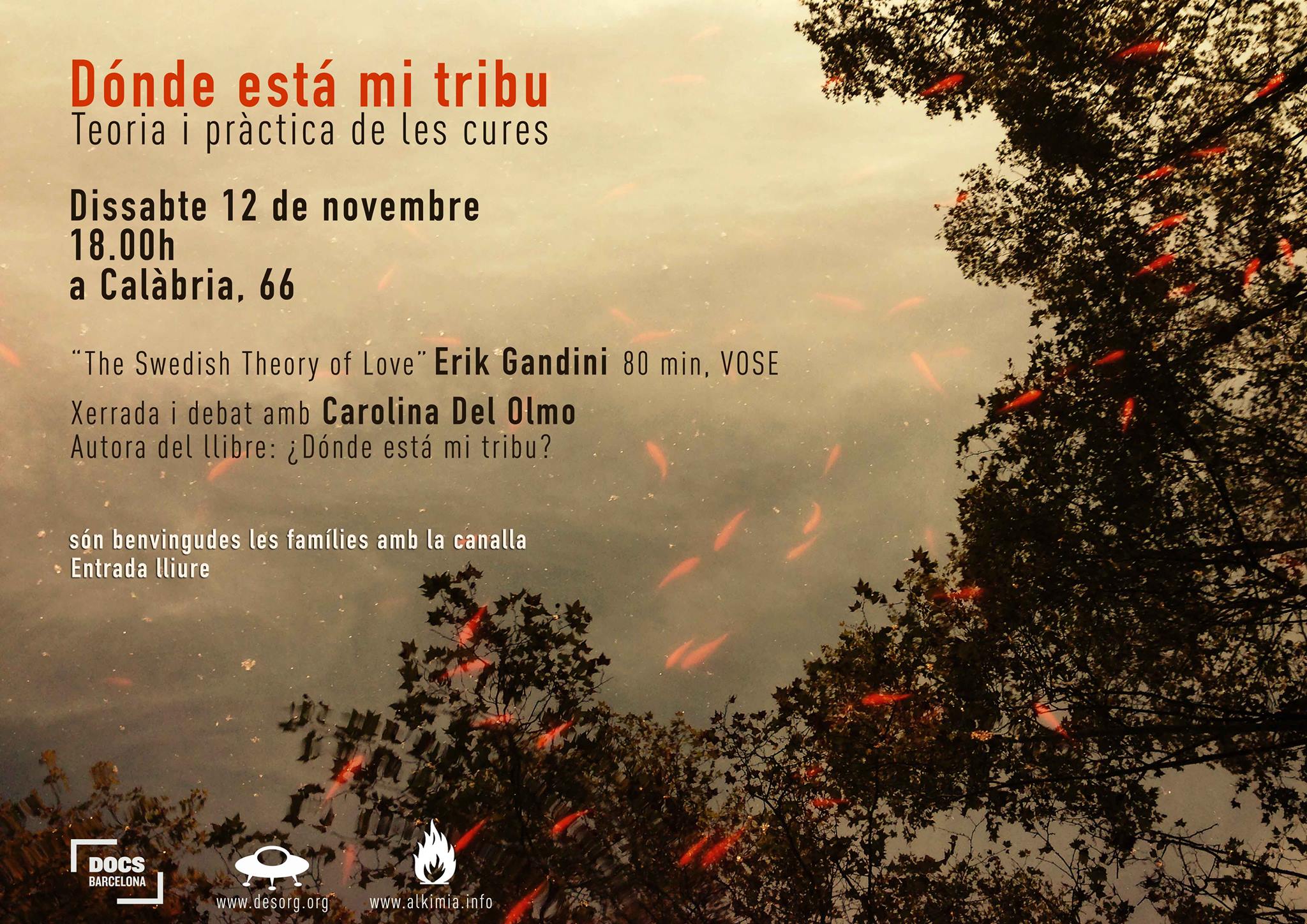Teoria i pràctica de les cures

-
La soledat està en alça. "Allò que el discurs estàndard amaga és que la "normalitat" de las jornades de quaranta hores setmanals, més guarderia, més una àvia per als moments de necessitat, és no simplement millorable, sinó directament inacceptable".
CAROLINA DEL OLMO, On és la meva tribu?
A Suècia, punt extrem en les tendències occidentals dins l'àmbit protestant, més del 50% de la població viu sola. La gent també mor sola, oblidada de tothom, després de tota una vida impulsada per un afany d'independència privada i d'adequació a la norma social, de comoditats i d'una socialitat just without phisical contact. El somni d'una vida independent, alliberada dels vincles comunitaris i de la família patriarcal, s'ha revelat un malson de soledat, tristesa i buit existencial.
Hem de travessar les oposicions binàries que pretenen fer-nos elegir entre dues opcions, l'una dolenta i l'altra pitjor. No es tracta de tornar a la vella família estrictament patriarcal, però tampoc ens hem de conformar amb la soledat metropolitana. Es tracta de crear, d'assajar, altres maneres de viure i d'estimar.
“Segons Sarah Blaffer Hrdy (l'antropòloga i primatòloga ), les femelles de rata, un cop tancades en gàbies amb les seves cries com a única companyia, es comportaven d'una manera molt semblant a les mestresses de casa nord-americanes dels anys cinquanta, amb les seves obsessions i les seves neurosis. En canvi, observades en llibertat, les mares i les seves cries mostraven un ampli ventall de comportaments diversos en tot tipus de contextos socials”.
CAROLINA DEL OLMO, On és la meva tribu?
Una funcionària sueca, dedicada a investigar la creixent multitud de casos de gent que mor abandonada, completament aïllada, sense ningú, es pregunta al documental The swedish theory of love: "Per a què serveix tenir un milió al banc si no ets feliç? Però no és només no ser feliç, és la immensa i somnàmbula tristesa que inunda una civilització ruïnosa, l'existència dins la qual s'esmuny en mig de l'epifania d'una muntanya de deixalles.»
«Ho heu sentit? És el so del vostre món que s’esfondra", diuen els zapatistes. La independència individual és l'ideal catastròfic d'un món perfectament organitzat i eficient, però fred com el gel.
«Al final de la independència no hi ha la felicitat. Al final de la independència hi ha el buit de la vida, la insignificància de la vida i un avorriment absolutament inimaginable».
ZYGMUNT BAUMAN, entrevista inclosa a The swedish theory of love.
